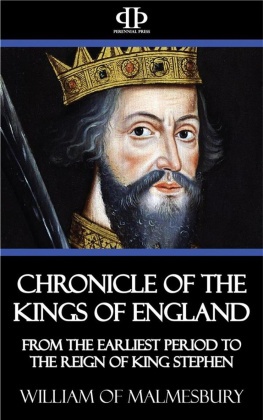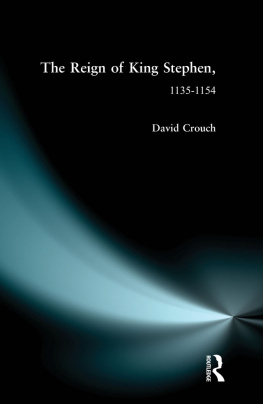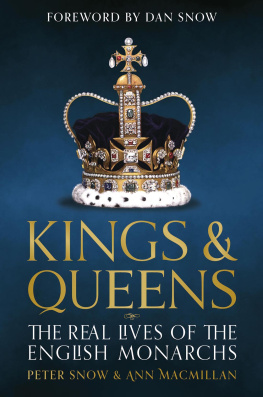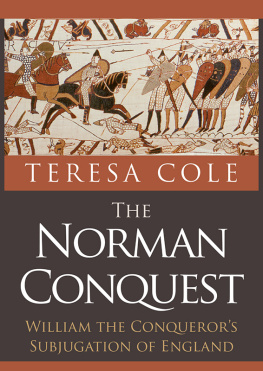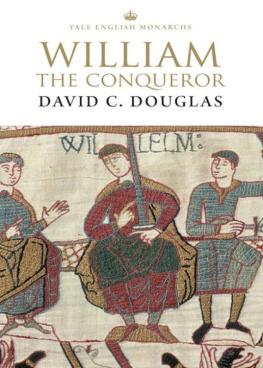Transcribers Notes
Cover created by Transcriber and placed into the Public Domain.
added by Transcriber and placed into the Public Domain.
The Timeline in the page headers of the original book is represented here by sidenotes, beginning with [ A.D. year ], placed between nearby paragraphs, and shaded in some versions of this eBook.
may be found at the end of this eBook.
An Anglo-Saxon Chief.
WILLIAM OF MALMESBURYS
CHRONICLE
OF THE
KINGS OF ENGLAND.
FROM THE EARLIEST PERIOD TO THE REIGN OF KING STEPHEN.
With Notes and Illustrations.
BY J. A. GILES, D.C.L.,
LATE FELLOW OF CORPUS CHRISTI COLLEGE, OXFORD.
LONDON:
HENRY G. BOHN, YORK STREET, COVENT GARDEN.
M.DCCC.XLVII.
J. HADDON. PRINTER, CASTLE STREET, FINSBURY.
EDITORS PREFACE.
William of Malmesbury , according to archbishop Usher, is the chief of our historians; Leland records him as an elegant, learned, and faithful historian; and Sir Henry Saville is of opinion, that he is the only man of his time who has discharged his trust as an historian. His History of the Kings of England was translated into English by the Rev. John Sharpe, and published in quarto, in 1815.
Though the language of Mr. Sharpes work is by no means so smooth as the dialect of the present day would require, yet the care with which he examined MSS., and endeavoured to give the exact sense of his author, seemed so important a recommendation, that the editor of the present volume has gladly availed himself of it as a ground-work for his own labours. The result of this plan is, that the public are enabled to purchase without delay and at an insignificant expense, the valuable contemporary historian, who has hitherto been like a sealed book to the public, or only accessible through a bulky volume, the scarcity of which served to exclude it from all but public libraries or the studies of the wealthy.
But the translation of Mr. Sharpe has by no means been reprinted verbatim. Within the last ten years a valuable edition of the original text, with copious collations of MSS., has been published by the English Historical Society. This edition has been compared with the translation, and numerous passages retouched and improved. Some charters, also, have been added, and a large number of additional notes appended at the foot of the pages, together with a few other improvements and additions calculated to render this interesting history more acceptable to the reading public.
J. A. G.
Bampton, June, 1847.
THE
TRANSLATORS PREFACE .
The author whose work is here presented to the public in an English dress, has, unfortunately, left few facts of a personal nature to be recorded of him; and even these can only be casually gleaned from his own writings. It is indeed much to be regretted that he who wrote so well on such a variety of topics, should have told so little to gratify the curiosity of his readers with respect to himself. Every notice of such an ardent lover of literature as Malmesbury, must have been interesting to posterity, as a desire to be acquainted with the history of those who have contributed to our instruction or amusement seems natural to civilized man. With the exception indeed of the incidental references made by successive chroniclers, who borrowed from his history, there is nothing to be learned of him from extrinsic sources till the time of Leland, who indignantly observes, that even at Malmesbury, in his own monastery, they had nearly lost all remembrance of their brightest ornament.
To himself then we are indebted for the knowledge of his being descended from both English and Norman parents; his father having probably come hither at the conquest. The exact time of his birth cannot be ascertained; though perhaps an approximation to it may be made. In the Commentary on Jeremiah,
The next circumstance to be noticed is, that when a boy, he was placed in the monastery whence he derived his name, where in due time he became librarian, and, according to Leland, precentor; and ultimately refused the dignity of abbat. His death is generally supposed to have taken place about 1143; though it is probable that he survived this period some time: for his Modern History terminates at the end of the year 1142; and it will appear, from a manuscript hereafter to be described, that he lived at least long enough after its publication to make many corrections, alterations, and insertions, in that work as well in the other portions of his History.
With these facts, meagre as they are, the personal account of him must close. But with regard to his literary bent and attainments there is ample store of information in his writings. From his earliest youth he gave his soul to study, and to the collecting of books; and he visited many of the most celebrated monasteries in the kingdom, apparently in prosecution of this darling propensity. The ardour of his curiosity, and the unceasing diligence of his researches, in this respect, have perhaps been seldom surpassed. He seems to have procured every volume within his reach; and to have carefully examined and digested its contents, whether divinity, history, biography, poetry, or classical literature. Of his acquirements as a scholar it is indeed difficult to speak in terms of sufficient commendation. That he had accurately studied nearly all the Roman authors, will be readily allowed by the classical reader of his works. From these he either quotes or inserts so appositely, as to show how thoroughly he had imbibed their sense and spirit. His adaptations are ever ready and appropriate; they incorporate with his narrative with such exactness that they appear only to occupy their legitimate place. His knowledge of Greek is not equally apparent; at least his references to the writers of Greece are not so frequent, and even these might probably be obtained from translations: from this, however, no conclusion can be drawn that he did not understand the language. With respect to writers subsequent to those deemed classics, his range was so extensive that it is no easy matter to point out many books which he had not seen, and certainly he had perused several which we do not now possess.
Malmesburys love of learning was constitutional: he declares in one of his prefaces, that had he turned to any other than literary pursuits, he should have deemed it not only disgraceful, but even detrimental to his better interest. Again, his commendations of Bede show how much he venerated a man of congenial inclinations and studies; and how anxious he was to form himself on the same model of accurate investigation and laborious research, and to snatch every possible interval from the performance of his monastic duties, for the purposes of information and improvement.
His industry and application were truly extraordinary. Even to the moment when we reluctantly lose sight of him, he is discovered unceasingly occupied in the correction of his works. Another excellent feature of Malmesburys literary character is, his love of truth. He repeatedly declares that, in the remoter periods of his work, he had observed the most guarded caution in throwing all responsibility, for the facts he mentions, on the authors from whom he derived them; and in his own times he avers, that he has recorded nothing that he had not either personally witnessed, or learned from the most credible authority. Adhering closely to this principle, he seems to have been fully impressed with the difficulty of relating the transactions of the princes, his contemporaries, and on this account he repeatedly apologizes for his omissions. But here is seen his dexterous management in maintaining an equipoise between their virtues and vices; for he spares neither William the First, nor his sons who succeeded him: indeed several of his strictures in the earlier editions of this work, are so severe, that he afterwards found it necessary to modify and soften them.

